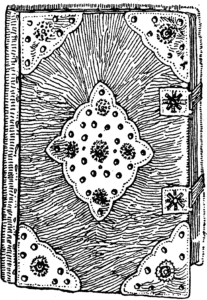
In The Art of Betrayal, the third in the series, Kate and her friend antiquities dealer Ivor Tweedy sell a hitherto unknown translation of the Little Domesday Book to an eccentric historian, setting the stage for murder, lies, and betrayal.
Have you heard of The Domesday Book? The name alone conjures up the misty past. It refers to the “Great Survey”—a census record of England, ordered in 1085by William the Conqueror. If William was going to be king, he wanted to know exactly what he was king of.
The name Domesday (Middle English for Doomsday) was taken from the book mentioned in the Bible, the one recording the deeds of all mankind, a reminder that the Domesday records were the final and ultimate authority.
Not many people know that The Domesday Book is actually two separate and independent documents, both written in Latin. The Great
Many of these tidbits made their way into English legend and folklore.
One of my favorite examples is a Norman gentleman by the name of Roger God-save-the-ladies (Rogerus Deus-salvet-dominas). In 1086, Roger lived in Essex. Where did he get his name? Who were the ladies he saved?
One of the characters in The Art of Betrayal believes she is descended from a mysterious “green maiden,” said to have been discovered by a sheep farmer in the eleventh century. Is she right—or is the most important thing her belief in the story?
Someone, I wish I could remember who, said, “The past is history; the future is mystery.” I get the point but respectfully disagree. History is littered with mysteries and hidden secrets. Delving into my own heritage, I learned that every ten years when the census-taker came round, my Scottish grandmother shaved a few years off her age.
History is often a record, not of what actually happened but what people wanted the future to believe. Lies are told, and those lies are repeated. As an antiques dealer and love of history, Kate Hamilton knows that what we believe about our past determines how we think and how we behave in the here-and-now.
For Kate, the past is truly prologue.
~ ~ ~ ~ ~
Connie Berry is the author of the Kate Hamilton Mysteries, set in the UK and featuring an American antiques dealer with a gift for solving crimes. Like her protagonist, Connie was raised by antiques dealers who instilled in her a passion for history, fine art, and travel. In 2019 Connie won the IPPY Gold Medal for Mystery and was a finalist for the Agatha Award’s Best Debut. She’s a member of Mystery Writers of America and is on the board of the Guppies and her local Sisters in Crime chapter. Connie loves history, foreign travel, cute animals, and all things British. She lives in Ohio with her husband and adorable Shih Tzu, Emmie. You can learn more about Connie and her books at her website www.connieberry.com.
The post Guest Blogger: Connie Berry – THE DOMESDAY BOOK: Don’t Worry, It’s Not the End of the World appeared first on Debra H. Goldstein.